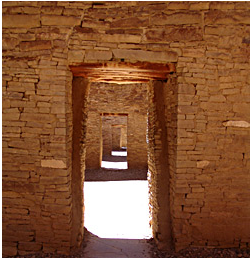Publication Date
12-1-2011
Abstract
This dissertation constitutes an integrated analysis of the Tsimane' economic subsistence system. Its analyses are guided by a body of evolutionary theory which posits that life history traits, the structure of social relationships, and nature of economic production co-evolve in patterned and predictable ways. This theory specifically suggests that, for humans, the returns to embodied capital development and declines in reproductive efficiency late in life interact to produce: prolonged development, extended lifespan, menopause, and a predominantly downward three-generational system of energetic provisioning. The current analyses of Tsimane' work effort, production, and transfers are consistent with this theory in the following ways. (1) Tsimane' young remain in net caloric deficit until around age 20. From the 20s onward, both sexes produce a substantial net surplus, with men in middle adulthood producing the bulk of dietary fat and protein. The contributions of post-reproductive men and women to total productivity within the population are substantial even when mortality is taken into account. (2) The benefits of subsidizing young kin have predictable effects on individual workloads, and variation in these benefits interact with the time-paths of strength and skill acquisition to determine the life history of Tsimane' resource production and transfers. Mothers decrease production with nursing children, but increase production with the presence of additional weaned offspring. Fathers and grandparents of both sexes also show greater productivity when more offspring and grandoffspring are present. (3) The life history of resource production leads to systematic differences in the benefits of receiving and the costs of giving calories across life, motivating net downward transfers between relatives across generations. Caloric transfers between families are predicted by the interaction of relatedness and relative caloric need. The analysis of transfers also reveals signatures of reciprocal consumption smoothing, and specialization and exchange across and within generations. The energetic approach taken in this dissertation complements existing demographic methods for evaluating the role of kin in promoting offspring success by directly examining the material means of investment in kin. Its results flesh out the structure of social relationships that constitute the core human pattern of cooperative reproduction.""
Keywords
human evolutionary ecology, life history theory, intergenerational transfers, Tsimane, Bolivia
Project Sponsors
National Institutes of Health (National Institute on Aging), National Science Foundation, Program in Interdisciplinary Biology and Biomedical Sciences, Howard Hughes Medical Institute, University of New Mexico
Document Type
Dissertation
Language
English
Degree Name
Anthropology
Level of Degree
Doctoral
Department Name
Anthropology
First Committee Member (Chair)
Hillard S. Kaplan
Second Committee Member
Jane B. Lancaster
Third Committee Member
Michael Gurven
Fourth Committee Member
James L. Boone
Fifth Committee Member
James H. Brown
Recommended Citation
Hooper, Paul L.. "The Structure of Energy Production and Redistribution Among Tsimane' Forager-Horticulturalists." (2011). https://digitalrepository.unm.edu/anth_etds/33

